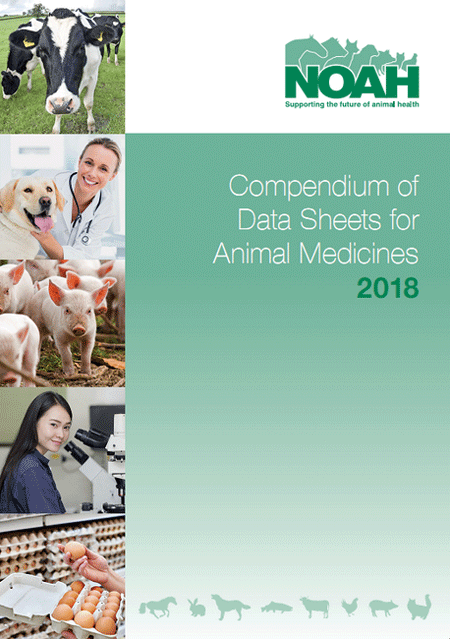The announcement of a corporate veterinary group’s collaboration with the new Keele University/Harper Adams veterinary school struck a few chords, and seemingly opened a figurative can of worms that (like their literal parasitic counterparts) just doesn’t sit well in my gut.
A few points to consider here, the first of which I have written about before, although not about this particular arrival on the vet school scene.
More vet schools needed?
Do we need more vet schools? The short answer, in my opinion, is no. The employment crisis in the veterinary industry as it stands is multi-faceted – pluck a reason out of the air and it almost certainly has some impact on why practices are begging for vets:
- compassion fatigue
- poor working conditions
- work-life balance
- salary
- lack of long-term prospects
- Brexit
- client pressure
- under-supported young vets
I could talk about any one of these reasons at length (and have done), but, for the purposes of discussing the above gem of veterinary news, I will focus on the last point: support for new graduates or young vets.
Vicious cycle

Some practices are excellent at providing a nurturing environment for young vets, but many are not and often not through any fault other than lack of staff.
This lack of support leads to high stress levels, young vets becoming fed up and looking elsewhere for a different career that provides them with the mental stimulation they desire, but with better support, hours and pay to go with it – thus the vicious cycle of extremely talented young people leaving the profession after a few years begins.
Problem solver?
Will opening more vet schools help the staffing problem? No. It is a short-sighted, temporary solution to fill a gap nobody seems to be able to plug. But the more graduates that accept jobs from practices who ideally wanted an experienced vet and can’t source one, the worse the retention problem will become. It is unfair on both parties to take on a new grad if a practice does not have the resources to sufficiently train and help them through their first few years.
To solve the retention problem, the profession needs to improve working conditions and encourage vets to stay, not just find more avenues to farm out new grads to try and bridge the gap.
Are corporates good for the profession?
I could (and probably will) discuss corporates at great length, but there is no clear answer for them being good for the profession. Having been stung with the sore end of the corporate tail once before, I’m inclined to say no, but that would be based on my experience of one particular practice. Conversely, I have colleagues who work for corporate practices that seem to be very well run and provide a great environment for learning.
My opinion is not fact and, to keep it short and sweet, is summarised below:
- The idea behind corporate practices is often well meaning, but does not always work when put into practice. For example, the graduate schemes sound great, but only work if they are implemented correctly on an individual practice level.
- Some corporates are extortionately priced compared to independents – there is a fine line between charging appropriately and taking the biscuit. This is likely exaggerated because many independents have been selling themselves short for years; however, it is not okay to triple prices in a week when an independent practice is taken over. All it does is feed the myth that vets are only in it for the money.
- Long-established corporately owned practices seem to have better client satisfaction than practices newly acquired under a corporate brand as the shock of takeover, staff changes and price increases are long gone.
- Corporates aim to provide better working hours (a four-day week, for example) and flexible working patterns, but, again, this varies on an individual basis.
- The hand of many partners in independent practice has been forced as the profession continues to change. Young people do not have the disposable cash to buy into partnerships, as was the tradition. Corporates have taken advantage of this by buying out those wishing to retire without any new blood coming through.
Corporate practices can vary wildly even within the same group – much of it comes down to the individual practice, as with independents. As much as corporates offer many benefits with their nice shiny contracts, many independents match or better these. Likewise, an independent or corporate practice can be an equally catastrophic place to work in if managed badly at the practice level.
Now, to the elephant in the room…
Should a corporate group be running a vet school hospital?
Is a corporate running a vet school hospital any different from the outsourced rotation format of the other newest veterinary schools – Nottingham and Surrey – whereby they have no on-site university clinic, but rotations are undertaken in nearby hospitals?

The concern with new veterinary schools popping up and proposing this sort of final-year teaching is the associated practices are then less available to provide EMS placements for local students. The purpose-built corporate hospital that is to be partnered with the new veterinary school avoids this particular hurdle in part, at least (there’s no mention of an equine hospital or farm clinic), but is it still a good idea?
Remaining impartial
It comes down to whether the corporate presence is going to be ingrained into the teaching. Will the graduate scheme offered by the group be heavily recommended? Would the business structure and branded drugs be taught to the students?
At university, we were always told to learn drugs not brand names to remain impartial. Would that impartiality be maintained appropriately in a hospital that uses own-branded drugs and whose bigwig advisory boards dictate which products should and shouldn’t be offered?
Encouraging research into all available treatment and diagnostic options is a key aspect of learning and practising evidence-based medicine on rotations.
Familiarity breeds
Even if no direct corporate emphasis exists, surely the undercurrent is going to sway the students into applying for jobs in sister practices under a graduate scheme.
As a new grad, you are bewildered by everything and getting a heads-up on even the smallest of obstacles can make a huge different to your day in the first few weeks. Therefore, simple things, such as the practice management system used in every practice the group owns, may be enough to sway the decision between accepting one of two jobs, simply because using a system you’ve gotten used to on rotations will make your life that bit easier during day-to-day practice.
Conclusion
It remains to been seen if a corporate partnership with the new vet school will be a success for the students under their care and the profession as a whole, and I’ll withhold judgement for now.
However, with predictions corporate takeover will saturate at 70% of practices in the profession, it is undeniable the veterinary landscape is moving further adrift from its once independent roots as the corporate giants continue to tighten their grip.



















